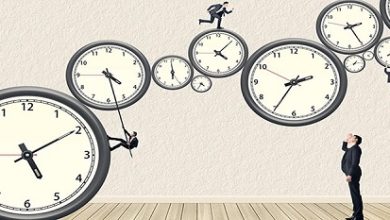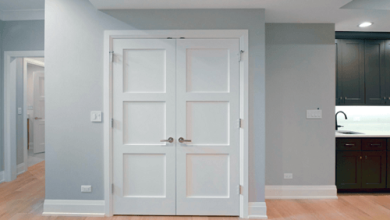Is Excessive Sleep Harmful For Your Health?

Excessive sleep is bad for your health in several ways. For one, you’ll feel drowsy during the day, making it difficult to perform your daily tasks. Another reason is the increased risk of depression and other underlying health conditions. It may be wise to consult your doctor before sleeping too much. Although it’s easy to justify sleeping excessively, it’s not always a good idea. Sleeping for more than eight hours a day is usually a sign of a sleep disorder. In fact, some studies have linked excessive sleep to a greater risk of heart disease.
For most people, a seven to nine-hour sleep is sufficient. However, some people need longer sleep than others. For instance, teens and children may need more sleep than adults. People with underlying medical conditions may need to sleep for more than nine hours a day. Hence, a good sleep schedule is important to maintain good health.
When a person needs to sleep for more than nine hours, it’s necessary to consult a medical doctor to get an accurate diagnosis. There are medications and lifestyle changes that can be used to alleviate the problem. For example, some antidepressants can make you sleepy. Nevertheless, it’s best to consult your physician before changing your sleeping habits or taking any medication.
Why Excessive Sleep Is Harmful For Health
Excessive sleep can be detrimental to your health. Some of the side effects of oversleeping include poor energy levels, reduced memory, and anxiety. It can also worsen chronic health conditions such as high blood pressure, stroke, and diabetes. Sleep specialists can diagnose the problem and prescribe treatment that will improve symptoms. Researchers are increasingly researching the connection between excessive sleep and higher rates of disease, depression, and mortality.
How To Treat Such Instance
- The primary treatment for excessive sleep is to address the underlying disorder that causes excessive sleepiness. This may involve lifestyle changes, behavioral modification, and medications that promote wakefulness. Some of these medications include armodafinil, pitolisant, and solriamfetol. If these methods are unsuccessful, stimulant medications are sometimes prescribed. These medications are known to improve cognition and performance while decreasing subjective fatigue.
- Treatment for excessive sleepiness involves treating the underlying cause of excessive daytime sleepiness. The treatment may include nonpharmacologic and pharmacologic treatments. Treatment programs should address the many different variables associated with this condition and include counseling and long-term support. Moreover, patients with a sleep disorder must undergo a complete evaluation to ensure the best outcome.
- A sleep disorder such as hypersomnia is a serious condition that affects the sleep patterns of an individual. The condition affects approximately 20% of the population and may affect daily life. The symptoms can be caused by a range of health conditions, such as shift work, family demands, studying, or social commitments.
- Sleep restriction can help people with insomnia. Patients should keep a sleep diary for several weeks and report their sleep hours and duration. This helps clinicians monitor and instruct the patient. Using a sleep diary may help patients reduce anxiety related to sleep. They should try not to sleep more than five hours a night.
- If you are experiencing excessive daytime sleepiness, it’s essential to find a solution. Changing your sleep habits may not cure the condition, but it may improve your mood, concentration, and overall health. Talking to others who suffer from this problem may help you understand how they feel.
What Are The Causes Of Excessive Sleep
- In some cases, the cause of excessive sleepiness can be as simple as poor sleeping habits. Poor sleep habits can lead to an irregular schedule, inadequate sleep hours, or a lack of quality sleep. People who have this problem are more likely to experience irritability and anxiety during the day.
- The best way to determine whether you need more or less sleep is through testing. If your sleep is too short, your doctor can prescribe a sleep study to determine the underlying cause. The results of the sleep study will help determine whether you have a sleep disorder. Your doctor can recommend an effective treatment based on your individual needs and symptoms.
- Insomnia is a common problem resulting in difficulty falling asleep or staying asleep. This condition may last for a few weeks or even months. It can also be caused by physical problems. For example, people with traumatic brain injury are more likely to experience sleep disturbances. In addition, sleep disturbances can be caused by psychological states, lifestyle habits, and even psychiatric conditions.
Effects Of Excessive Sleep
- Excessive sleep is dangerous for your health and may lead to medical conditions such as heart disease. It can also increase your stress levels. However, there are some ways to limit the effect of excessive sleep on your health. A recent study published in the European Heart Journal found that sleeping for more than six to eight hours a day may lead to increased risks of heart disease.
- Excessive sleep can cause several health risks. It can cause you to wake up feeling groggy in the morning and make you unable to function during the day. Oversleeping may also be a sign of a more serious condition. If you are consistently experiencing symptoms of insomnia and other health conditions, consult with a doctor.
- Excessive dreams can also cause weird dreams. There are also many other side effects of oversleeping.
- It is estimated that the average adult requires between seven and nine hours of sleep a night. However, this can vary based on age and activity level. Some people are genetically predisposed to sleeping more than others and may require more sleep. Also, people with medical conditions may need more sleep than others.
Diagnosis
- If you find that you are constantly tired during the day, you should see a doctor to rule out any underlying conditions. Your doctor will run several tests and ask you about your sleep habits. If he or she suspects that excessive sleep is damaging your health, he or she may refer you to a sleep specialist.
- Excessive daytime sleepiness is a common complaint of patients with sleep disorders. It affects about 20 percent of the population and increases the risk of motor vehicle accidents and work-related incidents. In addition, individuals who have excessive daytime sleepiness have lower health outcomes than comparable adults. Common causes include sleep deprivation and obstructive sleep apnea. Narcolepsy is another common cause of excessive daytime sleepiness. The prevalence of obstructive sleep apnea is expected to increase in the coming years.
- A good night’s sleep is essential to your overall health. However, excessive daytime sleepiness can impair your daily life and interfere with your functioning. It is important to consult with a sleep specialist to find a treatment for excessive daytime sleepiness. It may be a sign of other treatable sleep disorders.
- Sleep disorders are complex and often caused by a variety of factors. Sleep specialists can review your sleeping habits, environment, and medical history to find the right sleep patterns for you. There are several benefits to treating your sleep problems early on, and a sleep specialist can help you change your habits to maximize your health. Studies have shown that people who sleep excessively have a higher risk of diabetes, heart disease, and other chronic diseases.
Conclusion
Taking a nap can improve your sleep quality. Moreover, it can help you wake up more refreshed during the day. However, it’s not a cure for your sleep problems. However, if you’re still suffering from excessive sleepiness, your physician can prescribe you a medication that will help you sleep better.











